Swiss put spotlight on poverty in Chad
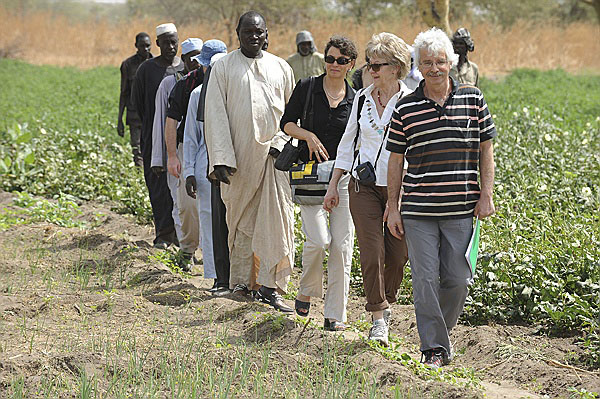
A group of Swiss parliamentarians is campaigning for fairer distribution of oil revenues in the central African country of Chad.
Social Democrat Carlo Sommaruga and Doris Fiala of the centre-right Radical Party have recently returned from a fact-finding mission in the country.
They joined representatives of non-government organisation Swissaid in calling for improved transparency in the distribution of oil revenues in the poverty-stricken country.
Speaking at a news conference in Bern on Thursday, the group said that despite the huge potential of oil revenues to fight poverty in Chad, living and employment conditions had actually become worse since drilling began in 2003.
It is estimated that some 80 per cent of people in Chad live below the poverty line, with most people depending on subsistence farming and herding for a living.
The country is rated 170th of 177 countries on the United Nations Human Development Index. Eight per cent of infants do not survive their first year and 20 per cent do not live to see their fifth birthday, according to the UN.
Swissaid director Caroline Morel said it was “shocking” to see the deterioration in conditions for local people between the time of her first visit to the country in 2004 and her visit earlier this year.
“The country is rich in natural resources but the resources are not used to reduce poverty,” she told swissinfo.ch, blaming the situation on government corruption. “We need to demand from the government transparency and good government and that these revenues will be used for the poor people.”
Drill baby drill
Oil exploitation in Chad began in 2003 with a deal, brokered in collaboration with the World Bank, that would see the Chadian government receive 14 per cent of total oil revenues generated.
About 160,000 barrels of oil are produced each day from wells in Chad. Esso, one of the first companies to move into Chad, estimates total oil revenues flowing to Chad in 2008 topped $4.3 billion.
The Chadian government wrote into law that five per cent of oil revenues would be designated to development programmes in the southern oil producing region of Doba alone. A further 20 per cent of revenues would be used for development in other parts of the country and ten per cent would be set aside for future generations.
But Swissaid project coordinator for Chad Olivier Ngardouel said that government corruption had ensured that local people had seen little or none of the money, which had instead been diverted to increased military spending or other unaccounted-for spending.
“The era of petrol should have brought with it enormous possibilities for economic growth and for the fight against poverty,” said Ngardouel. “But it is obvious that this hope has not been realised because of the lack of good government.”
Ngardouel said oil production had brought about increased living costs, environmental problems and the breakdown of the traditional fabric of society. The majority of the people have no access to potable water, sanitary conditions are inadequate and the education system remains poor.
Instead of creating employment for Chadians, Sommaruga said the oil companies were bringing in their own workers and programmes to train local people to work in the refineries were non-existent. He said farmers who had lost their land to the refineries had little opportunity for replacing lost income.
Mobilising the locals
Despite the hardships, there is evidence that Chadians are beginning to mobilise to demand their rights from the government and the oil companies, said Swissaid director Morel.
“We are seeing strengthening support of the small farmers,” Morel said. “They are starting to demand their rights by going to the oil companies and demanding compensation for land or mango trees and there have been some successes.”
Ngardouel pointed out that progress had also been made on a political level with the Chadian government last year signing up to the Extractive Industries Transparency Initiative, a global standard for improved transparency in the oil, gas and mining sector.
He said this step was particularly important given moves were underway to begin exploiting gold, uranium and calcium deposits which had been found since oil drilling began.
“How do we make sure the Chadian people profit effectively from the revenues generated from these deposits?” Ngardouel asked.
Swiss development aid
Radical party parliamentarian Fiala described her visit to Chad as tough and depressing. She said she would push for the Swiss House of Representatives to increase the country’s budget for development aid from 0.47 per cent to 0.5 per cent of gross national product when it meets for the Spring session on February 28.
Fiala said that she was “absolutely convinced” that the best way to stem growing flows of refugees to neighbouring Schengen zone partners was through increasing aid to source countries.
Last December, the House narrowly voted to maintain current spending on development aid at SFr640 million ($665 million), after some representatives had called for a 20 per cent cut.
“I have the impression that there is a lack of knowledge of the facts,” Fiala said, adding that too many people wrongly think “that we give too much money to corrupt countries and then the money disappears.”
Sommaruga noted that several countries comparable to Switzerland, such as Denmark, Sweden, and the Netherlands, had agreed to development aid budgets at a level of 0.7 per cent of GNP.
“That is something that we must strive for in Switzerland,” he said.
Population (2009 est.): 11.2 million
Infant mortality rate: 124 deaths/ 1,000 live births
Life expectancy: 48 years
Literacy: 37.2 per cent
GNP: $6.8 billion
(Source: World Bank)
Swissaid was founded in 1948 and is involved in development projects in nine countries.
In 2010 Swissaid spent SFr11.07 million ($117 million) on 169 projects in countries including Chad, India, Myanmar, Guinea-Bissau, Nigeria, Tanzania, Ecuador, Columbia and Nicaragua.
The organisation favours partnering with local communities and organisations to create sustainable development programs in the areas of health, education and the environment.

In compliance with the JTI standards
More: SWI swissinfo.ch certified by the Journalism Trust Initiative
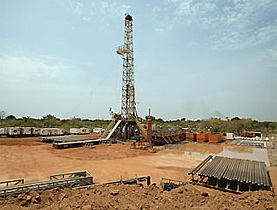
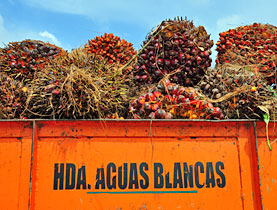
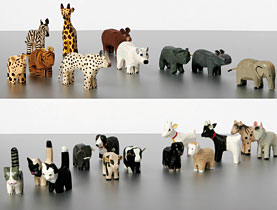
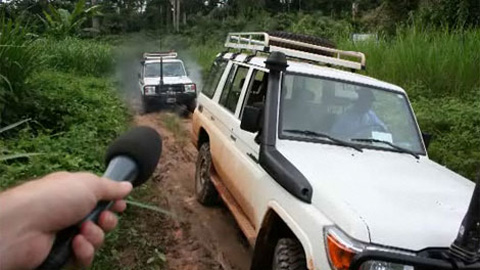
You can find an overview of ongoing debates with our journalists here. Please join us!
If you want to start a conversation about a topic raised in this article or want to report factual errors, email us at english@swissinfo.ch.